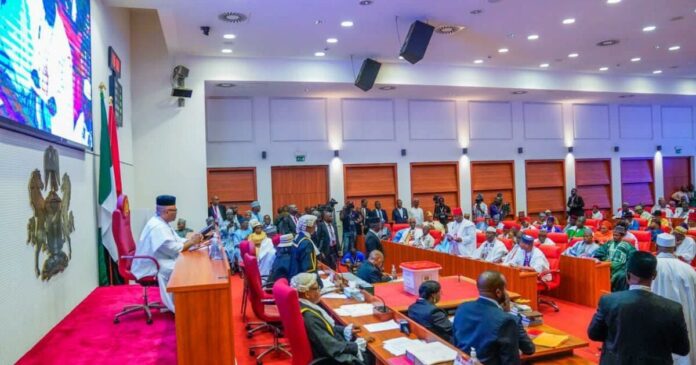A decisive stand against abuse of power in Nigeria’s educational institutions came on Wednesday as the Senate passed the Sexual Harassment of Students (Prevention and Prohibition) Bill, 2025, prescribing up to 14 years imprisonment without option of fine for lecturers or educators found guilty of sexually harassing their students.
The bill, transmitted by the House of Representatives for concurrence, aims to criminalise the “sex-for-grades” culture and end decades of impunity that have allowed educators to prey on vulnerable students, particularly women.
Leading the debate, Senate Leader Opeyemi Bamidele (APC, Ekiti Central) said the law would “safeguard the sanctity of academic relationships built on trust, authority, and mentorship.”
“This bill ensures that no educator uses their position to exploit students. It is a defence of dignity, a protection for the powerless, and a moral reset for our tertiary institutions,” Bamidele said.
He explained that the legislation establishes a clear legal framework for the prevention, prohibition, and punishment of sexual harassment in all tertiary institutions across Nigeria, while mandating each institution to set up an Independent Sexual Harassment Prohibition Committee to investigate complaints and enforce sanctions.
Under the new Act, offenders face between five- and fourteen-years imprisonment, while lesser offences attract between two and five years, both without an option of fine.
Acts constituting sexual harassment include: Soliciting or demanding sex from students or prospective students; Unwelcome sexual advances or creation of a hostile academic environment; Touching, hugging, kissing, or groping any student in a sexual manner; Sending sexually explicit messages or materials and Stalking or making sexually suggestive comments.
The law makes it no defence that a student consented, declaring such “consent” invalid where power imbalance exists. The only exception applies where the student and educator are legally married.
In addition, students can initiate petitions through their guardians, lawyers, or advocates directly to the police, the Attorney-General, or their institution’s internal committee.
During debate, Senator Adams Oshiomhole (APC, Edo North) urged lawmakers to expand the law’s reach beyond educational settings, arguing that sexual harassment thrives in workplaces and government offices as well.
“Let’s not pretend it stops at campuses. Harassment exists in boardrooms, ministries, and markets. Every Nigerian deserves protection under this law,” he said.
Deputy Senate President Barau Jibrin (APC, Kano North), who presided, clarified that the bill’s current scope could not be expanded since it came as a concurrence from the House, adding that other laws already address workplace harassment.
The Senate’s action follows years of public outrage over “sex-for-grades” scandals exposed in universities across the country. Investigations and documentaries have revealed lecturers demanding sexual favours from students in exchange for grades, academic support, or admission — with few facing real consequences.
By criminalising such acts, lawmakers say the bill represents a moral turning point for Nigerian education.
“We are sending a message to every predator hiding behind a professorial title: your days of impunity are over,” a female senator declared after the vote.
The bill will now be transmitted to President Bola Tinubu for assent, after which it will become binding law. Once enacted, tertiary institutions must establish internal committees to implement its provisions — while criminal cases will be handled directly by law enforcement and the courts.
For many observers, the Senate’s move signals more than a legal reform — it represents a societal reckoning with decades of silence, intimidation, and lost futures.
As one activist put it, “For the first time, the law is saying to students: we see you, we believe you, and we will fight for you.”

